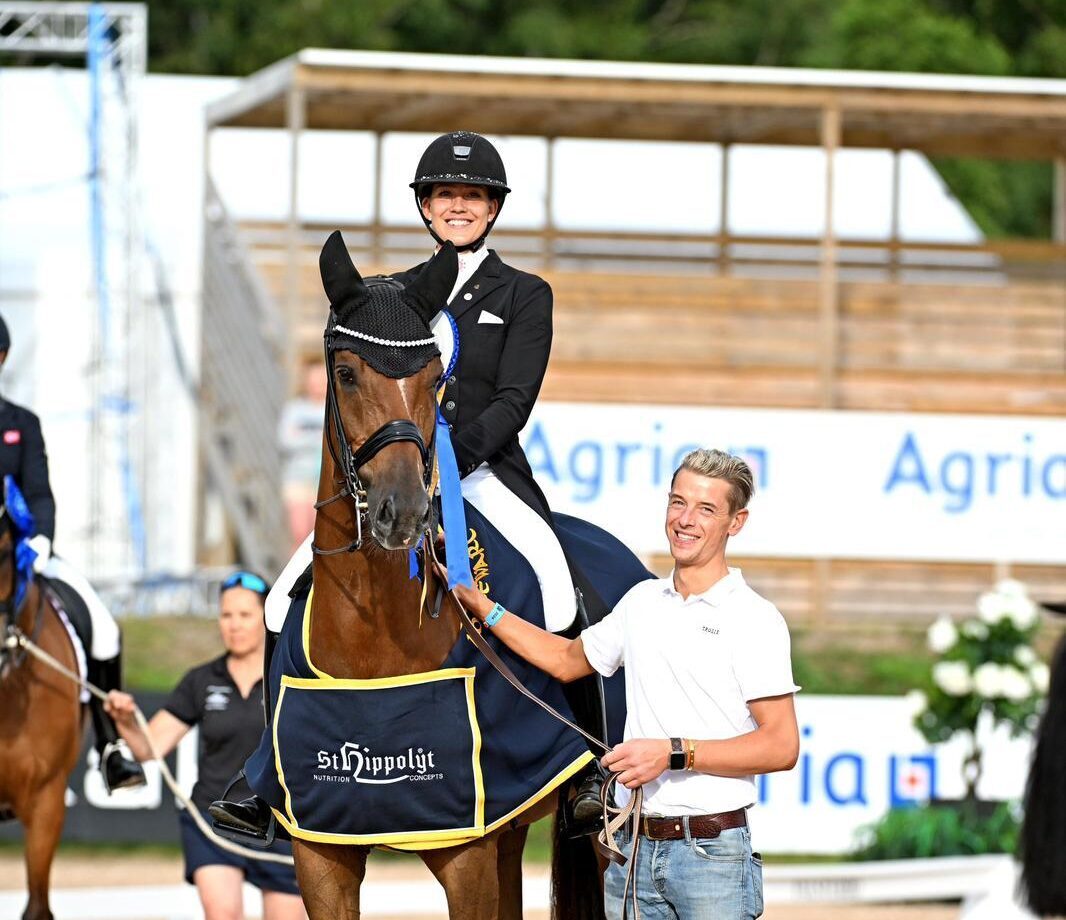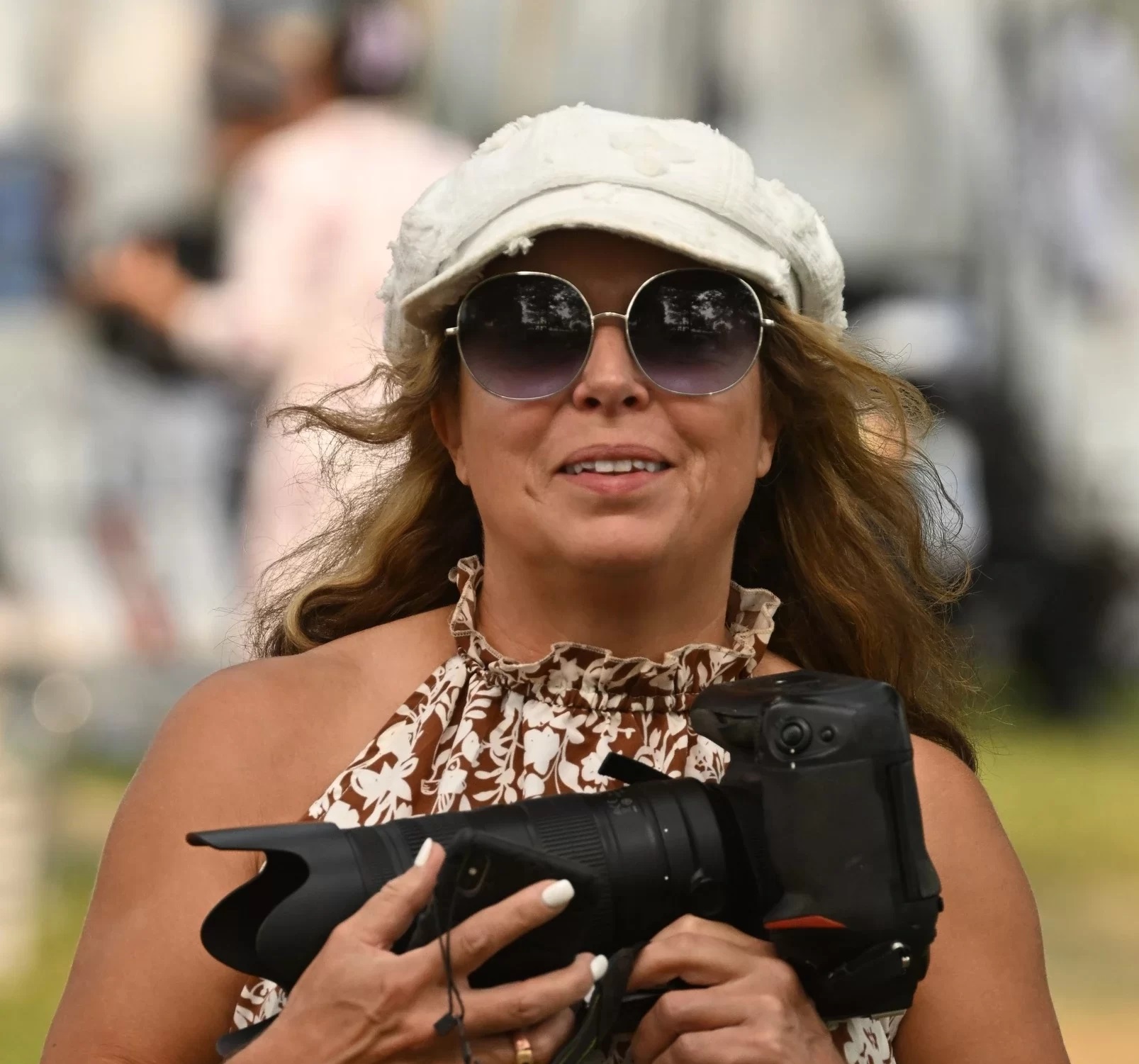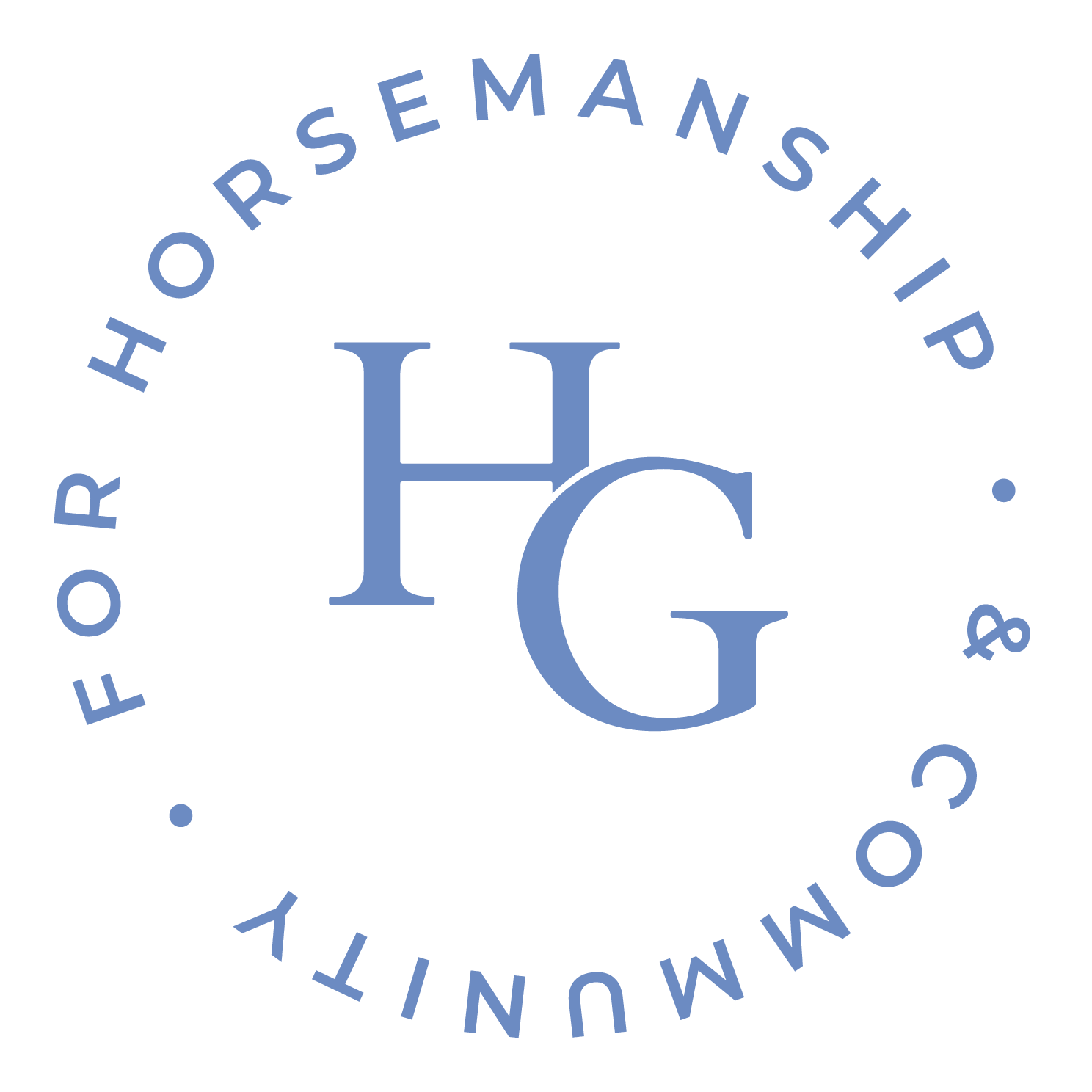After years in the equestrian industry, Lars Seefeld knows the value of a good employer and has discovered that his current boss is always willing to go the extra mile. Four months ago, Seefeld moved back to Denmark from his native Germany to work for Danish international dressage rider Cathrine Laudrup-Dufour, member of the 2022 FEI World Championships (Denmark) gold medal team and winner of individual silver.
“You Need Some Proper Shoes!”
Having moved in a hurry, most of his belongings were not with him and left him ill-equipped to deal with a deluge of rain at a very recent show. Then, the first thing Laudrup-Dufour did was go shopping.
“It was raining so much,” Seefeld said. I didn’t have rain shoes on, and my boss was like, ’Oh, you need some proper shoes.’ So she bought shoes for me at the showground.”
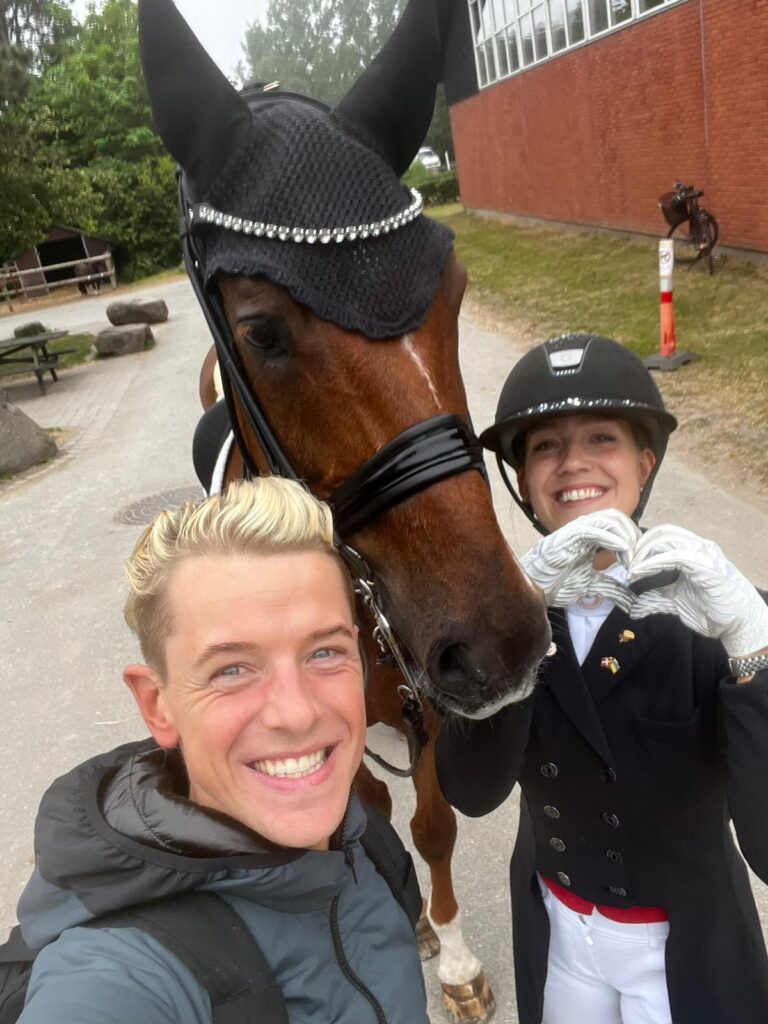
Seefeld’s lack of suitable clothing was because he had not yet had time to ship his belongings over from Germany to his new home in Denmark. The arrangement to take the job with Laudrup-Dufour was last minute, and with the Paris Olympics looming, he had to wait a little longer for his things.
When Everything Falls Into Place
“Cathrine called me, and she was like, ‘Lars, I need you. I need you right now,’ ” he said. “It was on Thursday. I said: ‘On Monday I want to quit my job here, so actually it’s perfect.’ I don’t know why, but it was like the universe was bringing us together.
“The funny thing is that she [had been] asking me to work for her for five years,” he added. “But I was already in Denmark and couldn’t quit my job. But this was the perfect timing. It’s really cool when that happens, isn’t it? When everything sort of falls into place. I will get my things, but not until after Paris.”
Regrouping
Being on the road is a necessary part of a job for a high-level groom. But just over a year ago, after Seefeld finished working for Danish dressage rider Daniel Bachmann Andersen in Denmark, he decided to slow down a bit and take some time to regroup in his home country. He moved back to Germany and set up his own small business.
“I went back to Germany for one year and two months,” Seefeld said. “It was a super nice time, and it was really a time to recover a little bit. I lived 30 minutes from Hamburg, and my parents were an hour away, so it was really nice to recover and build up my own business with some students.”
Eventually, the draw of being in the thick of the action at the top level caused Seefeld to rethink. “I missed the international shows,” he said. “So I was like: I have to find something else where I’m happy.” And that’s when Laudrup-Dufour called.
Life with Horses
Growing up, Seefeld was aware of his dad – a jumping rider with some three horses and competing at national shows. “I was always thinking that I wanted to work with horses,” said Seefeld. “But my dad was really straight with me. He was like, ‘Maybe just try something else.’ I said, OK, I will give it a try.’ ”

Seefeld took on a landscape gardening job, but it wasn’t for him. “After two weeks, I said ‘Sorry dad, I want to work with horses.’ He said, ‘That’s totally fine. I’m happy that you tried something else.’ For me that was important – to have my whole family behind me.”
Continuing Education
Seefeld began learning about the breeding and care of horses in Germany at the age of 16. After three years, he began working at a show jumping stable. It was a steep learning curve, but it was his best time, he said. He learned to drive the transport for some eight horses. “It’s a different business, jumping from dressage,” he said. Now I am just driving one horse.”
Seefeld continued his equestrian education by completing a rider diploma and acquiring a license to drive a large truck and trailer. He then took a job overseeing the breeding program of 13 stallions, selling the semen and driving around to breeders to inseminate their mares.
Addressing Mental Health
The life of a groom is not always smooth sailing, and Seefeld has conquered the highs and lows of the job with the help of a mental health coach.
“Some years ago I was always like, ‘Oh I don’t need that because I’m not sick or in pain,’ but it has nothing to do with that. A mental coach helps you to deal with different kinds of pressure and helps you to have the right goals.
“I just learned so much from this mental coach,” he added. ”And the funny thing is my new boss, Cathrine, has the same mental coach.”
Building Blocks
His coach uses the analogy of building blocks in the form of mental bricks. “We talk about what is important in a working relationship,” he said. “Trust is really important – and that is one brick. Then to be appreciated is also one brick; teamwork is a brick. And I think you have to put every brick in place step-by-step to make it steady.”
When challenges come, the bricks are the armor that protects him. “You have to have a strong foundation,” Seefeld said. “A blow may come, but you have a straight back and can stay there and can say, ’Hey, I have all my bricks around me, I am strong enough for this.’”
Compartmentalizing and Taking Time
Compartmentalizing difficulty is another tool in the mental health box. “If a problem comes, you can just put this problem a little bit to one side on the shelf and just focus still on your goal. When you have time to relax, you can take the problem down from the shelf and sort it out. “This is something for all grooms,” he added. “I will tell everyone to try to spare the time to go to a mental coach. Just do it and make your life much easier.”
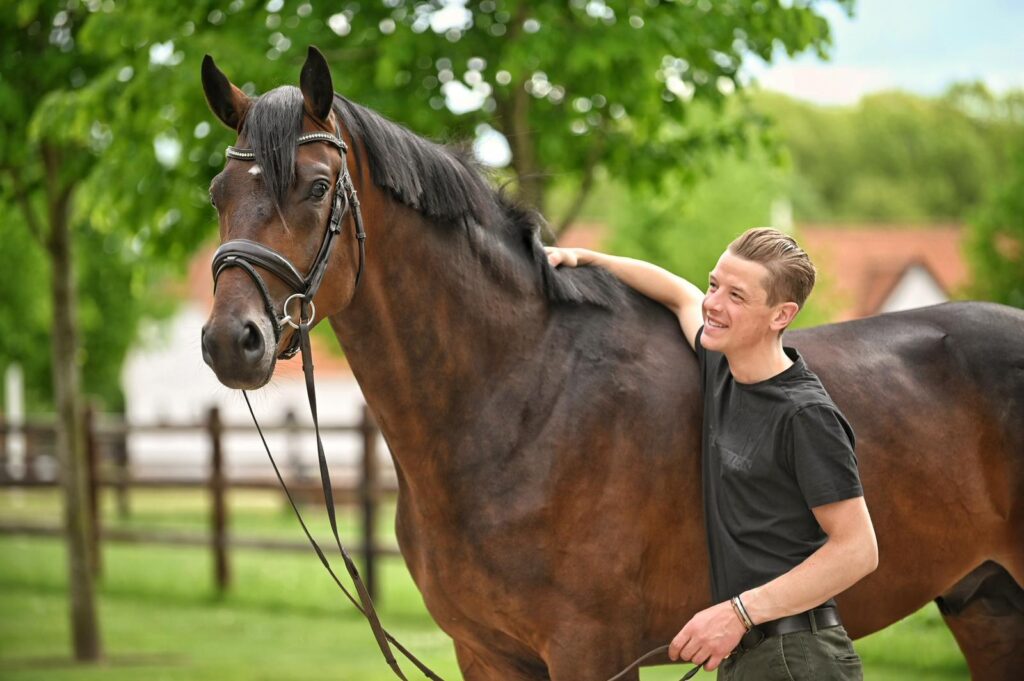
Seefeld also advises his peers to take some time out for themselves. “It’s also important that everyone in this business has a private life,” he said. “Because if you don’t have a private life, and you are working nonstop, then you burn out, and you have no energy anymore. And you know, the horses, they need your energy and your attention. I always say do what you love. And we all work in the kind of job which we love. We love to work with horses. We can love this job, but we also need to love ourselves and get time for ourselves.”
Passion for the Job
On the flip side, grooming is never a 9 to 5 job and requires sacrifices of personal time.
“It is not easy to find people who have the stamina to do the job,” he said. It’s a huge problem right now. Luckily, there are still some young people who are not looking at the clock but really have the passion for the horses and the job, but it’s getting harder and harder to find them.
“I tell everyone, if you don’t have the passion for it, you can’t do this job. Because sometimes, with animals, the job doesn’t actually have a timetable or a limit on how many hours you have to work. If you have a horse with colic in the evening, of course you have to be there and take care of it. You cannot say, ‘Sorry, my job is done now. See you tomorrow.’”
Employers Have to Ensure a Groom is not Overworked
To compensate, Seefeld also realizes that it is up to the employer to implement checks and balances to ensure a groom is not overworked. “Employers have to take a bit more care with that,” he said. “Making sure that the employee is getting private time and proper time off.”
The Uniqueness of Cathrine Laudrup-Dufour
It is not a problem he needs to worry about with Laudrup-Dufour, who pulls her weight on and off the horse. “Normally, the rider is not helping and is not coming in the morning to muck out and feed the horses or do the rest of the job with the grooms,” Seefeld said. “The grooms have to do it all themselves. I can tell you right now that I am in the best position because I have an amazing boss, and she’s always helping me.”
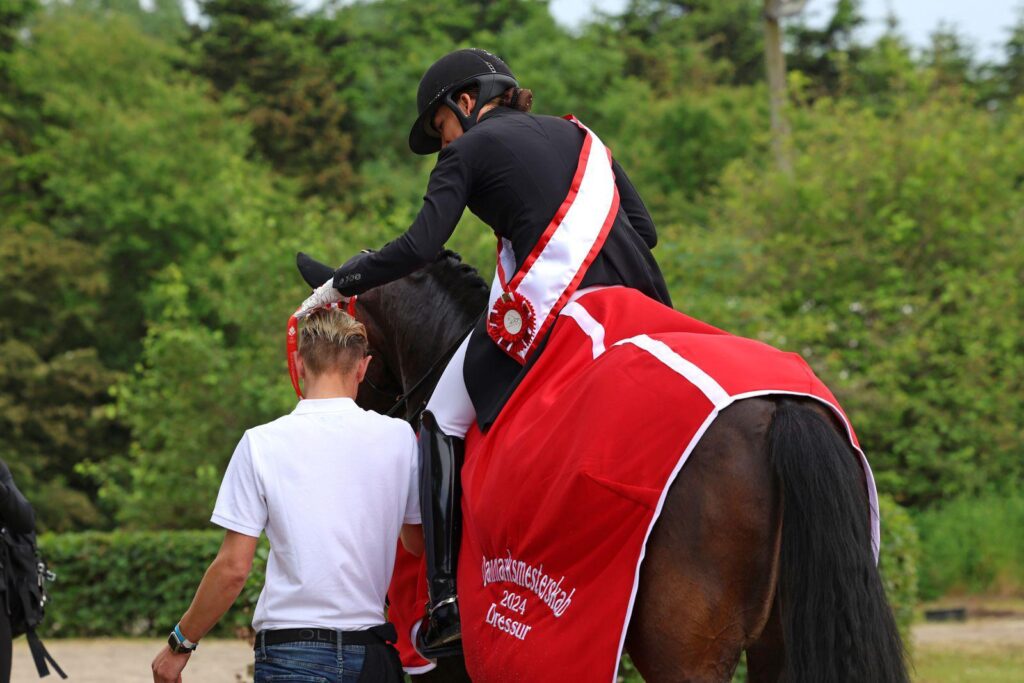
At that same soaking Sweden show, Laudrup-Dufour proved yet again how hands-on she was in helping the horses and her groom. “We had just arrived at the horse show in Sweden recently – where I got soaking wet – and we just unloaded the horses when Cathrine was already preparing the shavings. She told me, ’OK, you have to fix the truck, and I will fix the stable,’ ” Seefeld remembered. “I was unloading the truck a little bit, cleaning the truck, parking the truck, putting the electric on, and when I came into the stable it was almost all done. This is like a level of teamwork that I’m having to get used to because I’m used to doing it all by myself.”
“She is number one,” he added. “She’s really doing everything at the show and making sure that the horses are feeling really, really good. I’m sure there are riders out there who do that, but it’s not the norm.”
Creating that Bond
While not the norm among the FEI dressage level, Seefeld sees Laudrup-Dufour’s mentality as a huge asset to her relationships and, thus, performances with her horses. “It’s probably better for the horses and the riders to have that bond if they spend that much time together. Horses are not machines; they’re also athletes.
“If you don’t have the special bond with your horse as a sport partner, then you can’t have the best results,” he added. “It’s really important because it all happens in the barn really. If you don’t know what’s going on with your horse in the barn, then you’re not going to know your horse well at all.”
Breaking Down the Routine
The daily routine is fairly regimented for Seefeld and his fellow workers. While being a groom is not a 9 to 5 job, there is benefit in having a schedule that allows for both work and relaxation for both horses and grooms. Seefeld is first to arrive at the stable in the morning at 6 a.m.
“I’m totally alone with all the horses,” he said. “And I start to feed hay in the morning and also grain. And then I have my first coffee in the morning. I just listen to the horses eating their breakfast. I can tell you this is my highlight of the day.”
The hay is given first “so the horses can start to eat slowly and not just eat grain quickly because they are hungry first thing,” Seefeld said.
Giving the Horses Downtime
At 6:30, the rest of the team arrives, and they prepare all the horses with boots and blankets for the field. “Every horse is going out into the field daily,” he said. “This is one really important point here at our stable that the horses are outside most of the time.”
The horses are given hay in the paddock to munch on “so they don’t get bored there.”
Laudrup-Dufour arrives around 7, and the horses are ridden before they have lunch, followed by an afternoon of walking, massage and other treatments as needed.
At times – such as mid-afternoon and after 8 in the evening – the barn is deliberately left empty so the horses have complete downtime and are able to switch off. “We don’t want to have any stress in our day,” Seefeld said.
Freestyle
Freestyle, Laudrup-Dufour’s Olympic horse, also has a routine designed to keep her “healthy and with a good brain so that she is really motivated,” Seefeld explained. Depending on the weather, she is turned out, ridden and hand-walked more than once a day. On top of that, she gets a lot of massages.
“It’s important to take the horses out a lot,” Seefeld said. “I walk her [Freestyle] twice a day in the field and sometimes in the evening as well. So, she has some short periods when she’s in the box, but it’s also important that she has time to rest.”
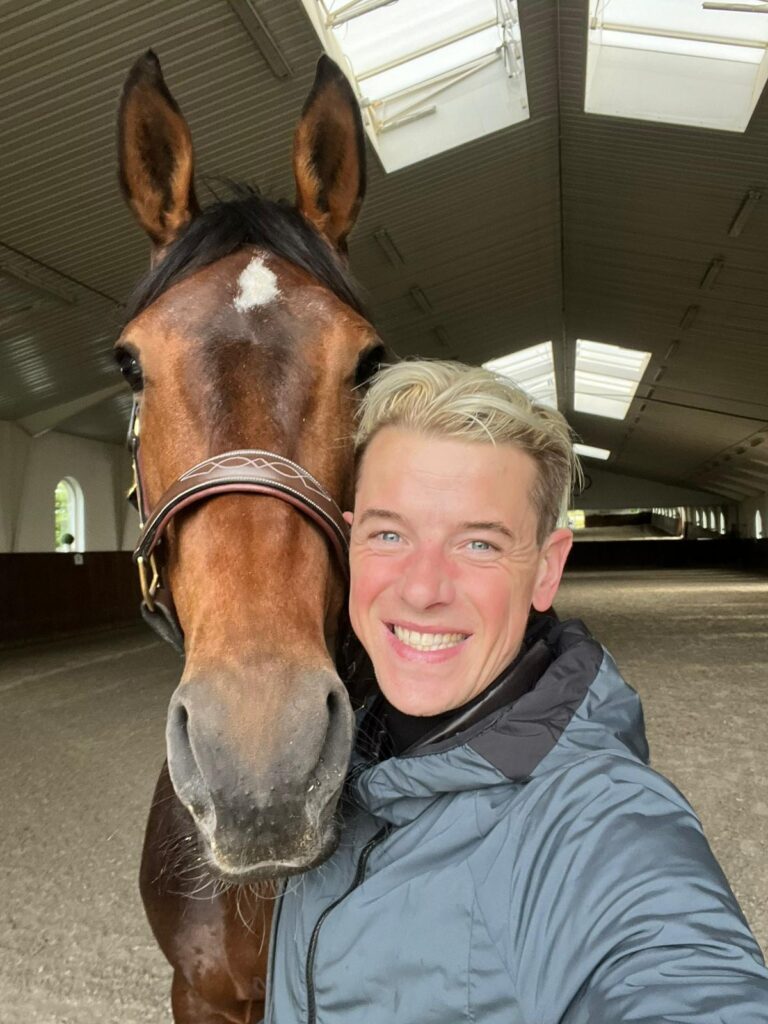
The grooms are given some weekends off completely, but Seefeld will often forgo his free time to check on his charge. “I’m also really picky so [to the point where] I’m coming in on my free weekend, and I am like, ‘Sorry, but I have to walk her,’ so I know everything’s been done right,” he said.
Rotating
Seefeld also explains that they rotate feeding so that grooms get extra hours off.
“Everyone is in charge maybe one or two times a week to feed in the afternoon,” he said. “So at 4, they get hay, and then at 4:30, they get the hard feed. The rest of the team has the time off, and then there’s always one person there a bit longer to feed.”
A similar rotation is implemented for night checks.
Honoring Grooms
Seefeld believes HorseGrooms is “doing very good work.” He recalls seeing a picture of a groom on the big screen for the first time as a 22-year-old at the 2022 FEI World Championships in Denmark.
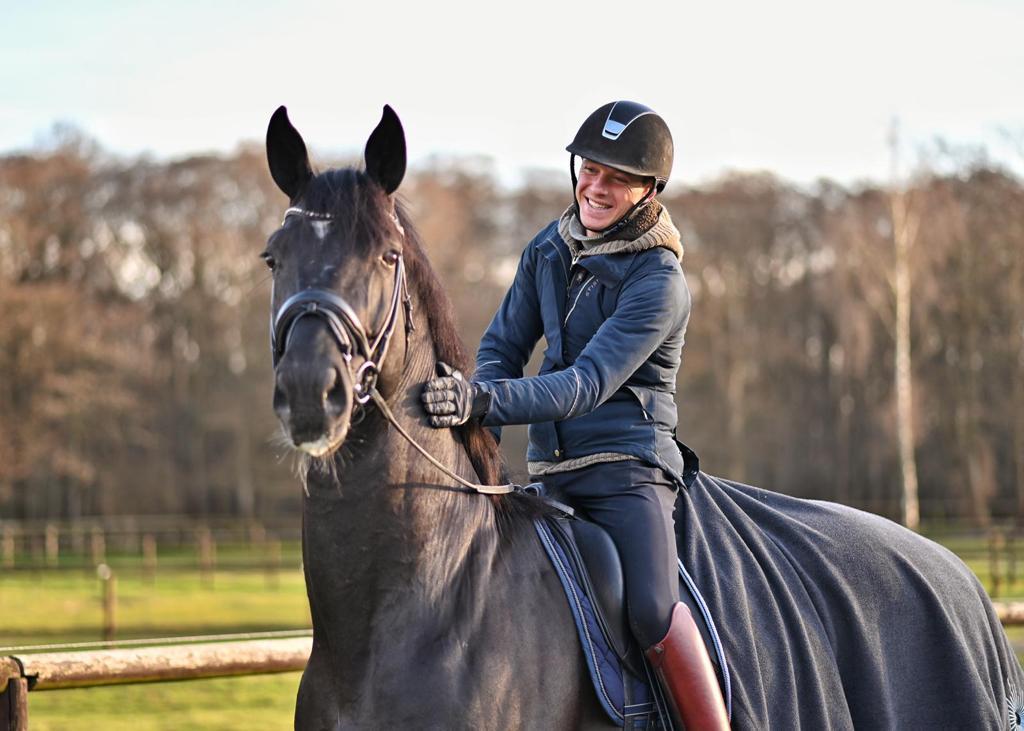
“Normally, you see the picture of the rider and the horse’s name,” he said. But there was the groom in the picture, and their name was on the screen.
“And I think this was a huge step for all the grooms. To see yourself on the screen and say, ‘Oh my God, I’m also an important person.’ It was an amazing feeling, and it was, I think, a big step in history.”
Lead photo courtesy of Kristine Ulsø
Exciting News!!
The HorseGrooms team is super excited that, after the Paris Olympic Games, Seefeld and Laudrup-Dufour will do a Q&A with HorseGrooms. The majority of that Q&A will be for members of the HorseGrooms Community, so make sure you join. It’s totally free!
We will keep everyone posted via the HorseGrooms Community, our social media pages and our website, but if you join the HorseGrooms Community, will have a front row seat!
